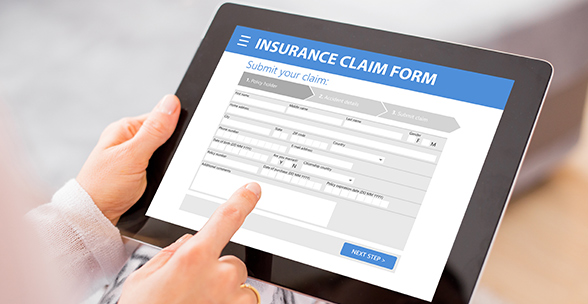Addressing Physician Burnout One Step at a Time
While most American workers are thinking about relaxing this upcoming Labor Day weekend – the sad truth is many physicians of small independent practices will not have that luxury. Instead, they will continue thinking about what they always think about – reducing medical costs, improving patient outcomes, reporting quality metrics, documenting notes in the EHR for proper billing…and more. It’s a tall order for any physician, and it’s why physician burnout has reached epidemic proportions with some experts even dubbing the problem a public health crisis.
Forty-four percent of physicians say they’re burned out or depressed with urologists, neurologists, physical therapists, and internists topping the list, according to the 2019 National Physician Burnout, Depression, and Suicide Report by Medscape. In addition, as many as 67% of mental health workers may be burned out. There is no time like the present to address this important topic.
Factors that contribute to physician burnout
There are many reasons why physicians may feel burned out, says Shola Ezeokoli, MD, internist, certified professional life coach, and author of Physician Heal Yourself. She provides four of them:
- Administrative demands. Insurance regulations have become more stringent over time, making it nearly impossible to keep up with each payer’s unique requirements for coding, billing, documentation, and medical necessity. However, failure to navigate these requirements leads to denials that negatively affect revenue and cashflow.
- Complex healthcare regulations. Today’s physicians must report quality measures, use certified EHRs, comply with HIPAA, and more.
- Physician shortage. The United States will face a shortage of more than 100,000 physicians by 2030, according to the Association of American Medical Colleges. Physicians who remain in practice may feel burned out when working longer hours to accommodate increased care demands. In addition, patients may be more medically complex because they deny or delay care due to cost barriers.
- Superman or superwoman complex. Physicians—particularly mental health providers—are taught to take care of their patients at all costs—even when it means compromising their own well-being and need for time off, including sick time.
On the other hand, feelings of burnout could have nothing to do with work and more to do with home life, says Ezeokoli. For example, is the physician a single parent raising three children on their own? Do they have a sick relative for whom they provide care at home? Identifying the root cause of the burnout is an important step in addressing the problem, she adds.
Why it’s important to address physician burnout
Ezeokoli sums its up succinctly: “You can’t pour from an empty cup,” she says. Physicians who are truly burned out may have a more difficult time connecting with their patient, and patients may not open up as easily to physicians who seem disinterested, removed, or irritated, she adds.
Patients frequently recognize burnout out long before their physician does, and at that point, they may simply look for another provider, says Ezeokoli. Addressing burnout not only helps physicians provide quality care but it can also help them retain patients as well, she adds.
Recognize signs of physician burnout
Ezeokoli provides these three signs of burnout:
- Chronic exhaustion. Physicians feel as though they’re ‘running on empty’ without ever having enough physical or emotional energy. They may even find themselves saying, ‘I don’t know how much longer I can go on like this,’ she adds.
- Compassion fatigue. Physicians feel little or no empathy toward their patients even when patients are visibly emotional and overwhelmed.
- No feelings of professional accomplishment. Physicians feel as though they no longer make a difference in patients’ lives, and they don’t find joy in helping patients achieve positive outcomes.
Combatting physician burnout
Burnout is something that physicians can alleviate by taking small steps. Consider these six strategies:
- Take some time off. It could be a few days or a few weeks. The length of time doesn’t matter. What matters most is that the physician talks to their family and support systems about their feelings and seeks help for the burnout, says Ezeokoli.
- Leave work at work. Many physicians become burned out by the volume of EHR documentation that’s necessary for patient encounters and many find themselves bringing work home with them. Instead, Ezeokoli provides this advice: Document a handful of important bullet points while the patient explains their problem. Examine the patient and develop a course of treatment. Finish the note immediately after the patient leaves the exam room. Spending two or three minutes to complete documentation after each appointment is more efficient than saving it until the end of the day or evening when it would require two or three hours.
- Delegate tasks. Physicians can’t do it all, nor should they. The key is to delegate tasks (e.g., returning calls to patients, answering emails, and refilling prescriptions) as much as possible, says Ezeokoli. Hiring a non-physician provider and/or care coordinator may also be a feasible solution and look into how technology solutions can help pick up some of the tasks you have been doing manually.
- Practice mindfulness. When feeling overwhelmed, take a break and a few deep breaths. Pay attention to your surroundings. Then go back to the task at hand, she adds.
- Connect with colleagues. This is especially important for mental health providers who require ongoing support and encouragement when treating complex clients.
- Consider telehealth. Mental health providers may find a work-life balance when providing services via telehealth because they can render them outside of the office, which can provide them with greater flexibility.
Taking the time to address burnout helps physicians lead more productive and satisfying careers, and it also benefits patients through higher quality care, says Ezeokoli.
Kareo will be addressing the topic of physician burnout in independent practices on September 18 and will be providing a link to register in the coming week. In the meantime, click here to find out how Kareo's EHR helps physicians and office managers save time in their clinical workflow.




















